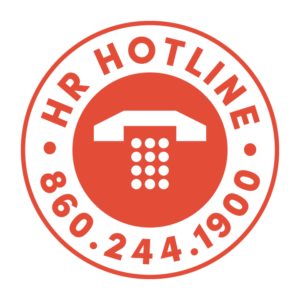HR Hotline: Can We Require a Current Employee To Get a Medical Exam?

Q: One of my employees, a machinist in his late 60’s, has been making a lot of errors lately that have been costly for our company.
Several co-workers have reported that they’ve seen the employee’s hands shaking.
A supervisor recently asked the employee if everything was ok, and also noticed the shaking hands. The employee acknowledged that his hands sometimes shake, but insisted that he could still do the job.
May we require him to get a medical exam as a condition of continued employment?
A: Yes. Title I of the Americans with Disabilities Act limits an employer’s ability to make disability-related inquiries or require medical examinations of current employees.
However, such inquiries and exams are permissible where they are “job-related and consistent with business necessity.”
Generally, this means that an employer must have a reasonable belief, based on objective evidence, that either: (1) an employee’s ability to perform essential job functions will be impaired by a medical condition; or (2) an employee will pose a direct threat due to a medical condition.
Sometimes this standard may be met when an employer already knows about an employee’s medical condition, has observed performance problems, and can reasonably attribute the problems to the medical issue.
However, without this prior knowledge, an employer may rely on information from a credible third party – such as a co-worker or supervisor – that an employee has a medical condition or that he shows signs of a medical problem.
And of course, the employer may personally observe symptoms indicating that an employee has a medical condition that impacts his ability to perform essential job functions.
“Reasonable Belief”
In your workplace, your employee, his co-workers, and his supervisor have all commented on the employee’s shaking hands.
This is enough to create a “reasonable belief” that the employee may have a medical condition that impacts his ability to do his job.
Thus, you may require that the employee have a “fitness for duty” exam.
To ensure that you receive relevant, helpful information from the medical provider, it’s often a good idea to provide the physician with a detailed description of the employee’s duties and job prerequisites, including any physical qualification standards, and to require that the employee provide documentation of his ability to work following the examination.
It’s often a good idea to provide the physician with a detailed description of the employee’s duties and job prerequisites.
Keep in mind that this does not give an employer blanket permission to demand access to an employee’s entire medical record.
An employer is entitled only to the information necessary to determine whether the employee can do the essential functions of the job, or whether he can work without posing a direct threat.
In the event that the employee returns from the medical exam with information about a disability and a request for a reasonable accommodation, you must evaluate that request and provide the accommodation unless doing so would cause an undue hardship.
More information on what constitutes a “reasonable” accommodation and an “undue hardship” may be found here.
HR problems or issues? Email or call CBIA’s Diane Mokriski at the HR Hotline (860.244.1900) | @HRHotline. The HR Hotline is a free service for CBIA member companies.
RELATED
EXPLORE BY CATEGORY
Stay Connected with CBIA News Digests
The latest news and information delivered directly to your inbox.




